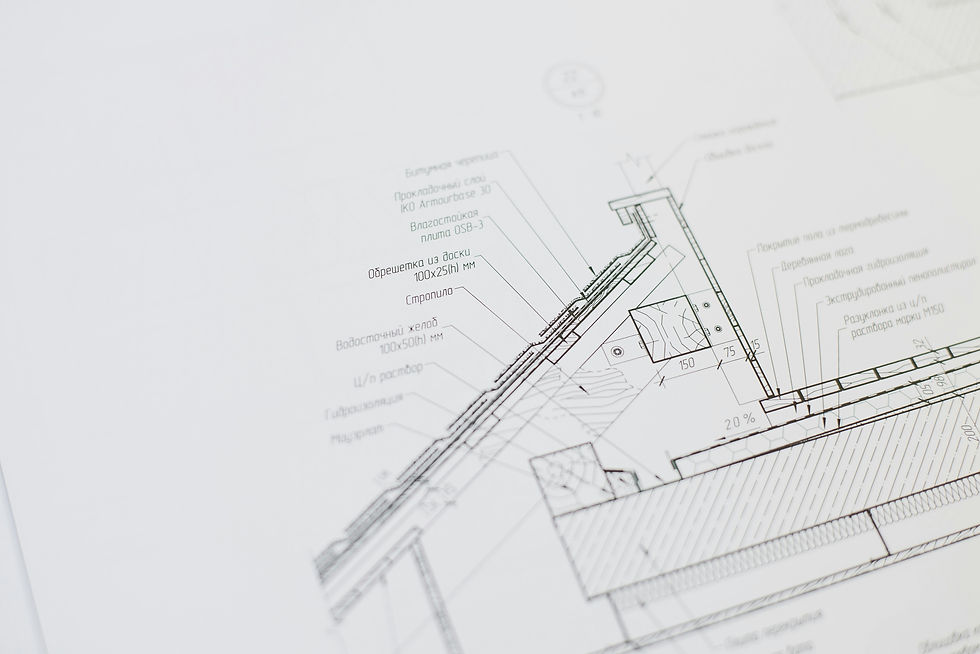Mistakes Students Make in Civil Engineering Assignments
- imrankhandigital64
- May 1
- 4 min read

How many times have you turned in a civil engineering assignment thinking, Yeah, I did pretty well on that, only to get it back with a grade that makes you question your entire existence?
It’s not that you don’t know your stuff. You do. But civil engineering assignments are sneaky. They look straightforward at first, but then one small mistake, a wrong unit, a misread question, a skipped step, throws everything off. And boom, your grade takes a hit.
You’re not alone. Every student trips up on these things. The trick is knowing where the traps are hiding before you step into them. So, let’s go over the biggest mistakes students make in civil engineering assignments, and how you can sidestep them like a pro.
1. Treating Deadlines Like Suggestions
You see the due date. It’s a week away. You think, Plenty of time. Then suddenly, it’s the night before, you’ve got a blank page, and you’re running on stress and caffeine.
We hate to break it to you, but civil engineering assignments aren’t the kind of thing you can just throw together at the last minute. There are calculations to check, concepts to apply, sometimes even software to use. Rushing = mistakes.
Here’s a smarter way to do it:
Day 1-2: Understand the problem. Gather your resources.
Day 3-4: Do the calculations. Take your time.
Day 5-6: Write the report, organize your work, and double-check.
Day 7: Final review and submission.
It sounds simple, but breaking it up like this makes everything so much easier.
2. Jumping to the Answer Without Showing Your Work
You might think your professor just wants the right answer. Nope. They want to see how you got there. If you just slap down “Final Load = 450 kN” and call it a day, you’re throwing away easy points.
Think of it this way: if you were designing a real bridge and just gave your boss the final numbers without explaining your calculations, would they trust you? Nope.
So, make it a habit to:
Show all steps clearly.
Label your equations.
Explain why you’re using a specific formula.
Even if your final answer is wrong, a solid step-by-step process can still earn you partial credit.
3. Messing Up Units
You’d be surprised how many assignments go completely off the rails just because someone mixed up feet and meters or forgot to convert pounds to Newtons.
One simple unit mistake and suddenly, your perfectly calculated structure is ten times heavier than it should be. In real life, that’s how disasters happen.
Always, always, double-check your units. If the assignment asks for metric, stick to metric. If you have to convert, write it out. One small slip-up here can tank your whole answer, and that’s just painful.
4. Copying From the Internet Without Understanding It
Look, we get it. Sometimes, assignments are brutal, and Google is right there. But if you’re just copy-pasting solutions without really understanding them, you’re setting yourself up for trouble.
First, plagiarism is a thing, and professors do check. Second, if you can’t explain your own work, what happens when they ask you about it? And third, in the real world, you won’t have an answer key to copy from.
Use online resources as a guide, but don’t rely on them blindly. Understand the concepts so you’re not just regurgitating someone else’s work.
5. Ignoring Software Or Trusting It Too Much
At some point, your assignments will involve AutoCAD, MATLAB, or another engineering software. And that’s where students go wrong in two ways:
They avoid the software because it seems complicated.
They trust the software blindly without checking the results.
Both are bad.
If you need to use a program, take some time to learn it first. Watch a tutorial. Play around with it. And most importantly, don’t assume the software is always right. It’s only as good as the numbers you put in. Garbage in = garbage out.
6. Not Seeking Civil Engineering Homework Help When Needed
We are talking about learning how to build skyscrapers. No wonder it can make you struggle like hell. Fight those but if you are stuck on one thing, you might consider seeking help.
Civil Engineering Homework Help can be the best option as they will connect you with an expert in the field. These experts are often experienced and well qualified so that these Civil Engineering Homework Help can provide the best experience.
So, if you are stuck, reach out to them and not only you will be able to do your assignment promptly but also get lifelong learnings.
Final Thoughts
Look, civil engineering is tough. Mistakes will happen. But the difference between a struggling student and a successful one is learning from those mistakes.
So, next time you’re working on an assignment, follow whatever has been said in this blog and see the difference. Civil engineering isn’t just about getting the right answer, it’s about making sure that answer actually works.
Now go get that A.



Comments